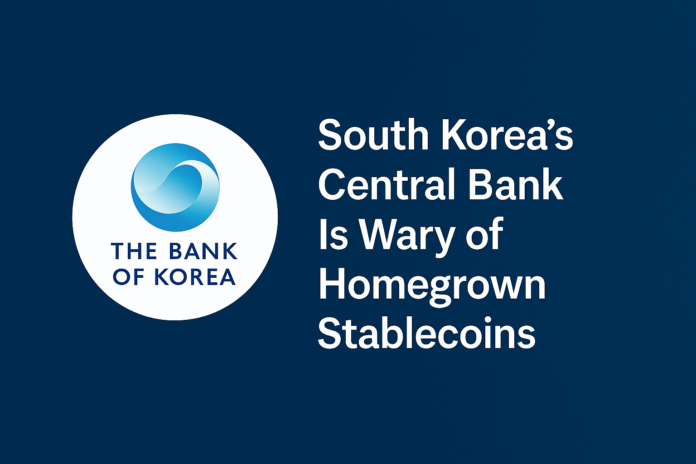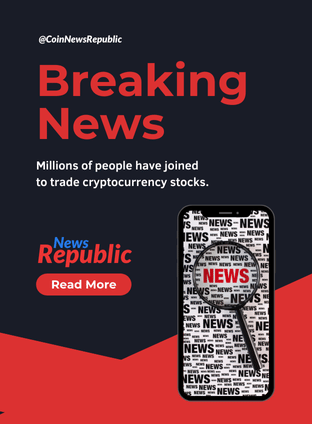Quick Takeaways:
- South Korea’s central bank is cautious about private companies launching won-pegged stablecoins.
- Their main concerns are financial control, stability, and avoiding crypto-related risks.
- A slow-and-steady approach could lead to a stronger and safer framework for digital assets.
Lately, South Korea’s central bank has been making some noise about stablecoins — not the global ones like USDT or USDC, but the kind built right at home. And to put it plainly, they’re not jumping on board just yet.
While tech startups and crypto enthusiasts in Seoul are getting excited about building local stablecoins pegged to the Korean won, the Bank of Korea (BOK) is putting the brakes. They’re not totally against the idea, but they’re being careful — and honestly, you can’t blame them.
What’s the Big Deal with Stablecoins Anyway?
Stablecoins are like the calm cousins of regular crypto. They’re designed to keep a steady price, usually tied to something like the U.S. dollar or another national currency. So while Bitcoin bounces around like a beach ball in a storm, stablecoins aim to stay put. That makes them useful for trading, remittances, and even everyday payments.
Now, imagine a stablecoin pegged to the Korean won. Sounds pretty convenient, right?
But the central bank sees a few red flags waving.
Control, Trust & a Bit of Fear
The big worry here is about control. If private companies start minting their digital won-backed coins, who’s really in charge? That’s what keeps the BOK up at night.
Central banks aren’t used to sharing the steering wheel. Their job is to keep the economy steady — controlling interest rates, managing inflation, stuff like that. If a major chunk of the population suddenly starts using a privately-issued stablecoin, it could mess with the BOK’s ability to steer the financial ship.
And let’s be honest: crypto hasn’t always had the cleanest track record. Scandals, hacks, rug pulls — they happen. The idea of a stablecoin collapsing or being mismanaged freaks regulators out, and understandably so.
South Korea’s Crypto Scene Is Hot — Maybe Too Hot
Korea isn’t shy about crypto. Young investors are all over it, and local exchanges like Upbit are buzzing with activity. But the energy has a flip side: things move fast, sometimes recklessly fast.
There’s a fear that if the country suddenly allows a bunch of won-pegged stablecoins to launch without a proper framework, it could lead to a Wild West situation, where the coins don’t hold their peg, or worse, become tools for fraud or money laundering.
My Take? They’re Playing the Long Game
I get it. Everyone wants innovation, but nobody wants chaos. The Bank of Korea seems like it’s saying, “Look, we’re not totally against this. But let’s not rush into something we can’t control.”
And honestly, maybe that’s smart. Some countries jumped in too quickly with crypto regulation (or lack of it), and now they’re scrambling to clean up messes. Korea might be taking the “measure twice, cut once” approach. It might be frustrating for developers now, but long-term? It could lead to a healthier, more trusted system.


